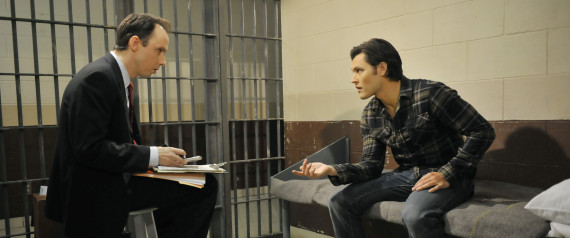
Mark Bouton had been working as an FBI agent for thirty years. Among his other success stories, he had managed to detect Timothy McVeigh, an American terrorist convicted and executed for the Oklahoma City bombing, the attack killed 168 people and injured over 600.
Bouton has written the book "How to spot lies like the FBI"; as he told Business Insider, "there are a number of facial expressions and associated reactions that could indicate someone is lying to you. Some are caused by nervousness, some by chemical reactions, and others by physical reactions."
Let's see 12 characteristics of a liar, according to Bouton:
Eyes darting back and forth
"This is a physiological reaction to him feeling uncomfortable or trapped by your questions that he doesn't want to answer," Bouton says. "It's a throwback to when people had to seek an escape route when they feared they were in a dangerous situation, such as facing a human or animal adversary."
Rapid blinking
"A person will ordinarily blink about five or six times a minute, or once every 10 or 12 seconds," Bouton says. "When stressed — for instance, when someone knows he's lying — he may blink five or six times in rapid succession."
Closing eyes for more than one second at a time
When someone's lying, they tend to close their eyes for one or two seconds. It's a type of defence mechanism. Normally, Bouton explains, a person will blink at a speed of 100 to 400 milliseconds, or 0.10 to 0.40 of a second.
Looking up to the right
"When you ask a normal, right-handed person about something he's supposed to have seen, if he looks upward and to his left, he's truly accessing his memory of the incident. However, if he looks upward and to his right, he's accessing his imagination, and he's inventing an answer."
Looking directly to the right
"If you ask about what a person heard, his eyes will shift toward his left ear to recollect the sound he heard, but if his eyes shift toward his right, he's about to fib"
Looking down to the right
"His eyes will shift downward and to his left if he's going to tell you his memory of a smell or touch or sensation, such as a cold draft or a terrible odour. But his eyes will shift down and to his right if he's going to lie."
(Bouton says that left-handed people will usually have just the opposite reactions.)
Bunched skin beneath and wrinkles beside the eyes
Bouton says that when people genuinely smile, the skin around their eyes bunch and wrinkle.
Face touching
Bouton explains that a chemical reaction causes people's faces to itch when they lie.
Pursed lips
"A person's mouth will often go dry as they're lying. They may do a sucking motion, pursing their lips, to try to overcome this."
Excessive sweating
Bouton says sweat may appear on the forehead, cheeks, or back of the neck, and you'll likely observe the person try to wipe it away.
Blushing
Blushing is an involuntary reflex caused by sympathetic nervous system (this activates your fight-or-flight response) and is a response to the release of adrenaline.
Head shaking
Often when people tell the truth they will nod their heads simultaneously in agreement with what they're saying. But if they shake their heads in disagreement with what they've said, their bodies are betraying their lie.













COMMENTS